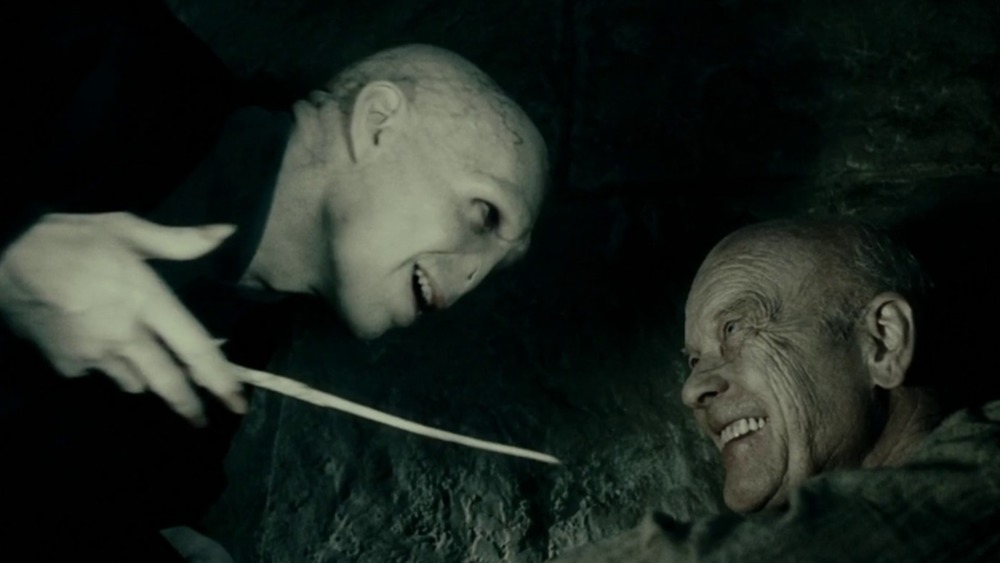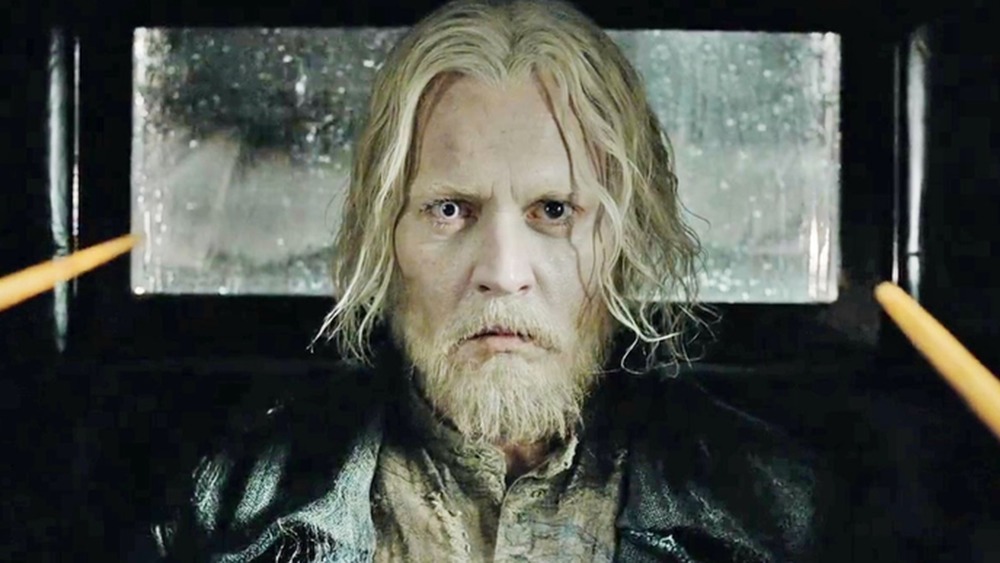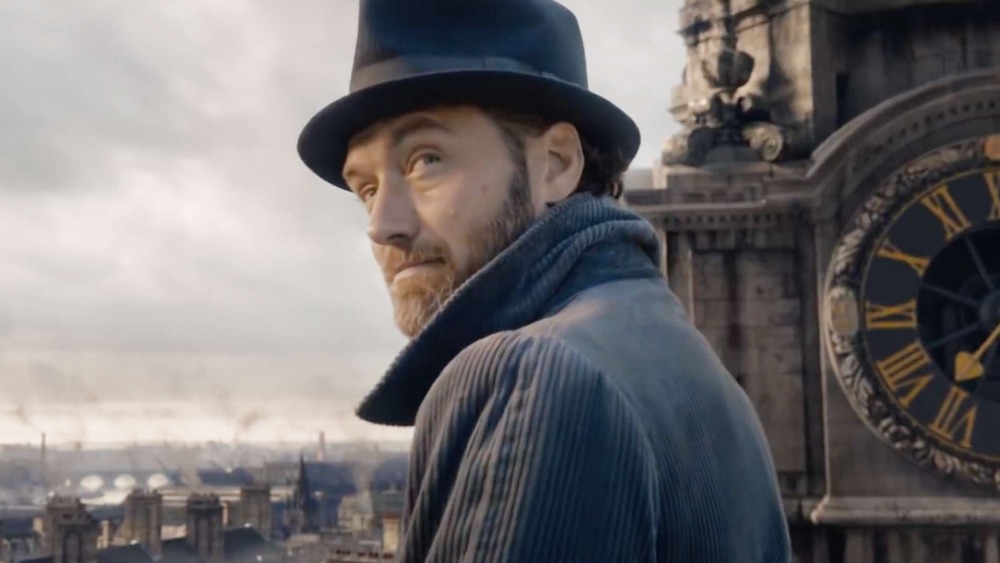How Fantastic Beasts Failed To Make Grindelwald As Scary As Voldemort
Despite the grand finale of the Harry Potter franchise coming via 2011's Harry Potter and the Deathly Hallows – Part 2, it was only a matter of time before fans made their way back to the Wizarding World. The opportunity arose in 2016 when Fantastic Beasts and Where to Find Them hit theaters, offering audiences a fresh look at this film universe through the eyes of the famous Magizoologist, Newt Scamander (Eddie Redmayne). Of course, every good protagonist needs a strong antagonist to oppose them, and Johnny Depp (soon to be replaced by Mads Mikkelsen) stepped up to the plate as the villainous Gellert Grindelwald.
One of the most imposing and calculating Dark Wizards in canon, Grindelwald's plans to enslave all muggles alone set him in a league of his own. Couple that with his proficiency in the Dark Arts and penchant for violence and destruction, and it's hard to argue that he's not the most threatening villain in the entire Wizarding World. On paper, he even seems more terrifying than Lord Voldemort (Ralph Fiennes) from the Harry Potter films. However, it's clear that he never quite realized his full potential on screen. Here's why Gellert Grindelwald has so far failed to measure up to the legacy of the former Tom Riddle.
Audiences have no reason to care about Grindelwald's motives
With two Fantastic Beasts films under his belt, Gellert Grindelwald will feature in the next franchise film more than ever before. However, if those behind the franchise want to push him into the same league of scariness as Voldemort, they have to pick up the slack, and they have to do it quick. As noted by Screen Rant, the next Fantastic Beasts film needs to give viewers an actual narrative reason to fear Grindelwald. Simply labeling him as the bad guy, and expecting everyone to just go with it, isn't enough to get him to "He Who Must Not Be Named" status. As of right now, we are totally comfortable naming Grindelwald.
The Screen Rant article also notes that Voldemort was an effective antagonist because his reputation preceded him. His reign of terror during the First Wizarding War solidified his place as a legitimate threat, and thus his constant background presence throughout the Harry Potter movies — building to his eventual return — gave fans reason to be concerned. We would also add that Voldemort's very real threat is present right from the beginning in the orphaned Harry's pitiable state, with a reminder of the Dark Lord's attempted infanticide stamped right there on our protagonist's head.
As far as Grindelwald goes, he "is a schemer still trying to rise in power, so when Fantastic Beasts: The Crimes of Grindelwald begins with a prison escape, the audience doesn't feel apprehension or worry." Basically, why should we care about this guy?
Exploring his relationship with Dumbledore could add a new layer to his villainy
At this stage, Grindelwald is a relative nobody compared to Voldemort. He hasn't accomplished much yet, therefore fans can't take him too seriously as a worthwhile antagonist in the Fantastic Beasts series. Luckily, should those working on Fantastic Beasts 3 elect to give him some much-needed attention, there's already an aspect of the narrative in place that can go a long way in boosting his villainous stock: his connection to Albus Dumbledore (Jude Law).
Two wizards that hold different ideologies but share a deeply rooted love that leads them to avoid any kind of confrontation "is a story rich with conflict, drama, and tragedy." The previous two Fantastic Beasts films haven't given their dynamic ample time to flourish, and as a consequence, the impact of Grindelwald's genocidal plans get lost in translation. His evil choices surely hurt Dumbledore on a personal level, and showcasing that would pack a major emotional punch.
It's no secret that, in execution, Voldemort is far scarier than Gellert Grindelwald. That's not to say that with proper development, the latter couldn't become the Hitlerian dark wizard he's supposed to be.


